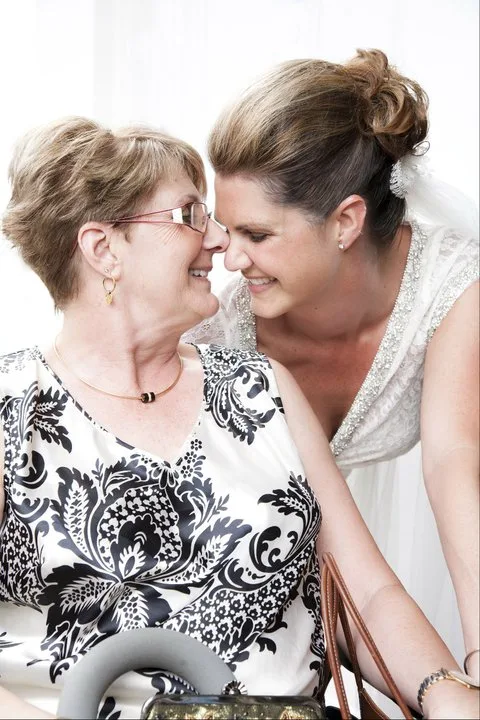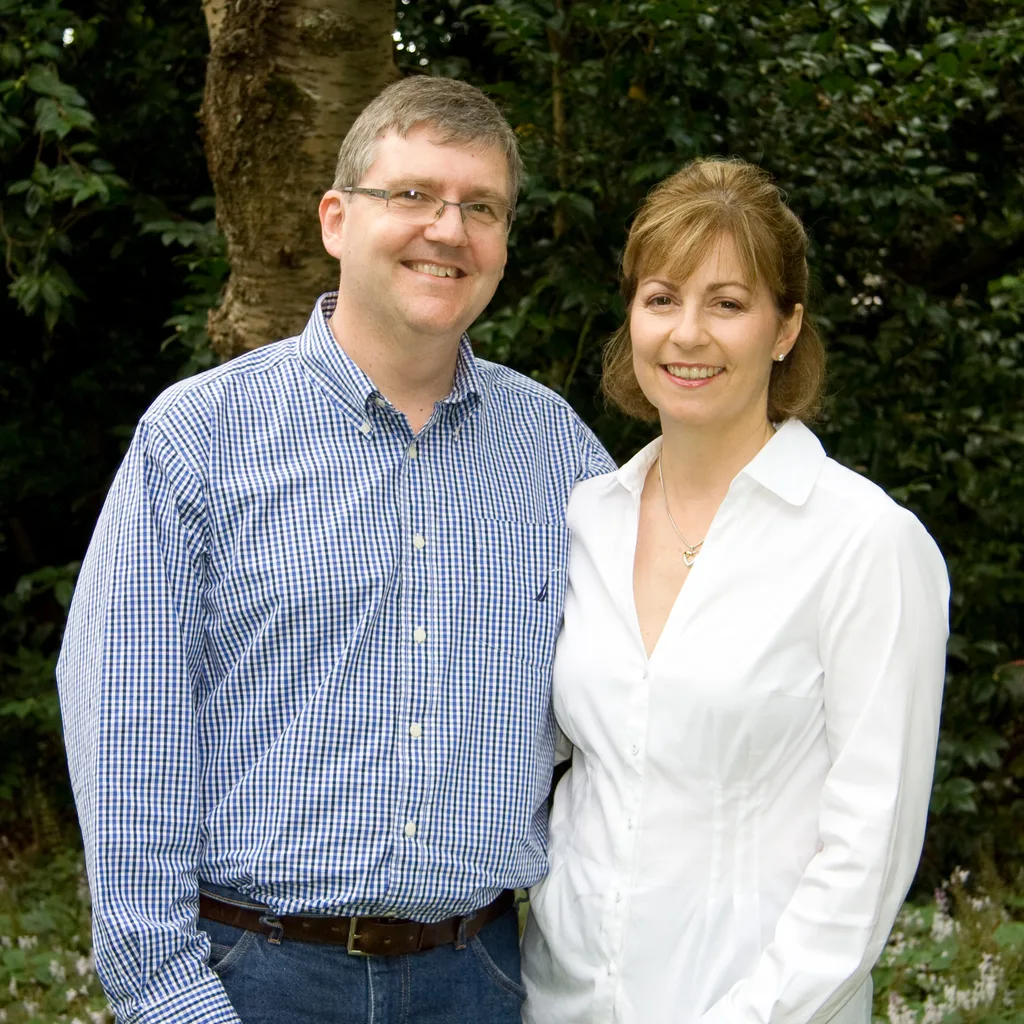EMMA GIUNTI
I knew nothing about multiple sclerosis when my doctor first mentioned it may be why I was experiencing trouble with my eyes. I couldn’t even spell it when I tried to google it but alarm bells were ringing loudly in my head. What if I couldn’t have a family?
I got married in October 2009. I was 34 years old and was excited to be marrying my love and starting a family.
Our honeymoon was magical but upon our return home, I started experiencing unusual symptoms including blurry eyes. It felt like I had a waterfall in front of my eyes but my eyes were dry. I went to see my GP who asked me immediately if I had been feeling pins and needles anywhere.
At that time I didn’t, but five years earlier I had pin and needles in my fingers for a few weeks that I just disregarded as nothing special. My doctor said my eyes looked ok and that it could just be an eye issue, but worst case scenario it could be MS.
I immediately went to the eye hospital for tests and I phoned my mum en route. She had been on ‘Doctor Google’ and we realised that I fit the criteria. I was a 30-year-old female and my symptoms all fit the description, but still I prayed we were mistaken.
I had been working on the National Breast Cancer Foundation’s Pink Ribbon Campaign which was stressful and add a wedding on top and I guess I was under pressure. For people with MS, it’s important to manage your stress as it can exacerbate the condition.
The eye hospital revealed nothing, but an MRI affirmed my fears were true. When my doctor gave me the news, I wasn’t shocked. I was expecting it but that didn’t make it easier. I wasn’t angry but when I left the surgery I found a quiet alley and I cried my heart out.
My husband and my family were incredibly supportive. I sought out as many people living positive lives with MS as I could and I kept a positive attitude about this new life of mine.
Now I feel that I’m living the MS dream. My eyesight returned to normal. I look like a healthy person. I exercise regularly. I had two healthy babies with no complications or exacerbations of MS symptoms during that time. I barely even know that I have it most of the time and I can run around after my two and five year old like any other mum.
After the dust settled, I approached MS Research Australia to do some volunteer work with Kiss MS Goodbye. Now I’m an ambassador for them and help with fundraising and awareness.
People with MS have to be brave because it’s a very uncertain disease. You just don’t know what each day will bring so we must continue to work tirelessly to unlock the mysteries of the disease so we can treat it better.

DANIELLE COLLEY
The thing I remember most vividly about my mum getting MS was the headaches.
Sometimes she would lie on the floor in agony and I wouldn’t know how to help. I would lie with her and massage her head, pulling little handfuls of hair in effort to relieve the pressure that was making my mum cry.
I was 13 and we were sitting in an airport when my mum first mentioned she had a blurry blob in her eye. It started with the vision but the thing I remember most graphically was the headaches.
A single mum-of-two, she worked very hard in a stressful job to keep all the family wheels turning, and then suddenly one day she was sick.
She wasn’t diagnosed with MS immediately. She flew to Sydney for tests with a brave face while my brother and I stayed with friends. We knew nothing but now I know that doctors were using words like brain tumour and stroke. She must have been terrified.
When she was finally diagnosed I was about 14 and our lives changed. Mum went from working all the time to not being able to work at all. She had life insurance which was paid out, and she went on a disability pension so we weren’t in financial trouble. It was still a big shock.
She didn’t get really sick, really quickly. For her it’s almost like watching a child grow. Or watching someone diet. When you see them all the time you barely notice the little changes but when I didn’t see her for months at a time, they became more apparent.
I moved out of home and she moved from NSW North Coast to Melbourne where the climate was better for her. The heat and humidity affect her negatively.
At the time I felt guilty that I didn’t stay and look after her. Looking back it’s a big responsibility for a 16-year-old to feel and she would never have wanted that anyway.
Mum’s legs started to be affected after a few years. By my 21st birthday she was using a walking stick, but she still danced to R&B with me in a smokey nightclub to celebrate.
When I was about 30, she began using a manual wheelchair when she was going out to places that required a lot of walking. We travelled to Cuba together – surely the least wheelchair-friendly place on Earth – but we had a wonderful adventure. The trip of a lifetime, she says.
By the time I turned 34 she was full-time in a motorised wheelchair.
She lives independently but with constant pain. You must never pity her, because she is the most incredible woman I have ever met. She always smiles, and is incredibly wise, and funny with just the right amount of silly. My mum is the most wonderful nana to her four grandchildren. They all rejoice in rides on her lap, or the “Nana Bus” as they call it.
She travels regularly to my home in Sydney and often goes for weekends away at my brother’s home with his wife and kids. She is the rock of our family and although her body may not work properly she is not defined by multiple sclerosis.

KATRINA HEMINGWAY
I was at a social function with my husband Mike one night when he leaned over to a chip bowl and he completely missed the bowl. He would be playing cricket with our kids but suddenly he would mistime his shots and miss the ball.
An MRI diagnosed that it was multiple sclerosis and we were relieved that it wasn’t a brain tumour – but this came with its own fears and worries. Mike experiences a range of symptoms but it is the constant nausea and dizziness that bothered him the most at first.
He has felt what we liken to morning sickness for 12 years. We’ve tried different treatments, and it’s not as bad as it was initially but it’s still there every day.
Mike had intravenous treatment similar to chemotherapy in August 2015, and he will have a booster shot in August this year. His neurologist has suggested that after this treatment he will hopefully stop progressing, but I still see him struggle with it every day.
Due to the progressive nature of the disease I feel that he’s never quite as good as he was the day before. We can only wait and see if this treatment is the answer we are hoping for. He will never be cured, but a cessation of progression would be something at least.
Mike is a very articulate and intelligent man who was a director of a company. He worked very hard all week but then he would need to sleep all weekend to recover. We went away on holidays three years ago and it was dreadful. His balance was awful, his memory was failing him a little bit. He wouldn’t remember names or important things so he began to implement technology to help. He would write note and reminders in his phone to help him remember things.
Mike stopped working when we realised that it was greatly affecting his quality of life. That was about nine years after his diagnosis.
He is now a member of the board for MS Research Australia so he spends a lot of time reading and working towards building relationships that will help fundraise for research and to gain more answers about this disease.
Our lives are quieter these days. If we have social engagements or business events they seem to really take it out of Mike. He used to be a great speaker who would give sharp and witty speeches off the cuff, but now he needs to prepare and he is often exhausted after an event. It doesn’t stop him though, and I’m proud of him for that.
Mike now walks with a walking stick, and we are the most comfortable in our own home. Loud places and too much stimulation overwhelm him so he retracts from the environment. We just don’t do the things that we used to do and have had to find new interests together.
The thing about MS is depending on where the sclerosis or the scarring occurs, in the brain or the spinal cord, is where the symptoms will emerge. I don’t feel that Mike has much scarring on his spine so he may never end up in a wheelchair. The cognitive issues Mike has indicates his scarring is in his brain.
He has said he would rather have a wheelchair because often sclerosis in the spinal cord leaves people with full cognitive function, but this disease affecting his brain has brought him to tears on occasion. It’s frustrating and frightening for him, and it’s hard to watch someone you love struggle.
Together, Mike and I have collectively contributed to raising $400,000 for MS Research Australia through walking events. Together we are very proactive in making sure this doesn’t ruin his life and he gets the most out of life regardless of this diagnosis.
To make a donation to help kiss goodbye to MS visit kissgoodbyetoms.org here.











